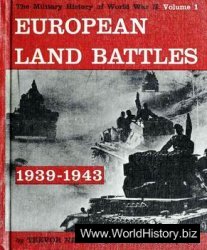SS Police Officer of Lublin: SS General Globocnik.
Shortly after the beginning of the Russian campaign Himmler ordered a concentration camp to be built in Lublin. Globocnik had selected a site for the camp and Inspector of Concentration Camps Gliicks appointed Globocnik to take charge of it. There already was a skeleton of a camp there and the former Kommandant of Buchenwald, Koch, was put in charge as camp Kommandant. At that time Globocnik promised Glucks tremendous amounts of blankets, sheets, clothing, and footwear. He also promised kitchen utensils and medical supplies for the concentration camp. After this Glucks came to Auschwitz and ordered me to select the items we needed and send a list to Lublin. With my administrative director, Wagner, I immediately drove to see Globocnik. After much haggling, we finally were able to dig up some useful items for Auschwitz. I can’t remember the kinds of things or the amounts, but there were some medicines and medical instruments among them. Anyway, compared to Globocnik’s promises the actual amounts were contemptibly small. Most of the items were confiscated from the Lublin area, delivered from all over and stored in a factory. This is how I got to know Globocnik. He acted incredibly important as he used Himmler’s order to build new police bases in the newly conquered areas. He developed fantasy plans for bases extending as far as the Ural Mountains. No difficulties existed as far as he was concerned. He would just dismiss any objection with a sweep of his hand. He wanted to exterminate the Jews right then and there and save only those he needed for building the police bases. He wanted to truck the personal items of the Jews to a storage camp and use them for the SS. In the evenings by the fireplace he spoke about these ideas in his Viennese accent so casually that they seemed like harmless stories. I was somewhat shocked by Globocnik. According to Gliicks’s description of him, he was supposed to be tremendously capable and highly regarded by Himmler. My first impression was correct. Globocnik was a pompous ass who only understood how to make himself look good. The plans he presented of his visions were as if they were in large part already real. He wanted to do everything by himself, for only he knew the best way. It didn't matter if it was the extermination of the Jews, the resettlement of the Poles, or how all the confiscated goods from the Jews should be used. He knew how to tempt Himmler with these fantasy schemes. Himmler believed him and kept him long after a series of complaints just kept flowing to him. Some of those who complained were the SA governor general and the district governor. Globocnik became unbearable. I don’t remember now what finally led to his being relieved of his duties. After Lublin he became a high-ranking SS officer and police inspector in Triest. Whatever he was doing there is not known to me.
My second experience with him was in the spring of 1943 in Lublin. 1 had to have a serious talk with him about the machines and tools sent to us from the local arms factory. This was after he was at armaments plants in Auschwitz. These machines were the worst junk, but he reported to Pohl that he delivered the most up-to-date machines. Because Globocnik himself had personally ordered these dirty dealings, he started to have second thoughts. But he soon shrugged it off and made it up to me by delivering five truly modern machines. My administrator, Mdckel, had to account for the old machines. These deliveries were reported to Pohl as were the others. But they were almost never in service. He made great promises to make backup deliveries, but that never happened.
At this same time, it so happened that the chief of the Main Personnel Bureau, SS Lieutenant General von Herff, was in Lublin so that he could get to know the officers in Globocnik’s area. On this occasion Globocnik showed him around making sure he saw all the model areas. First he showed him how he was using the personal items taken from the Jews in a former airplane factory; then he showed him the Jewish workshops where the most outlandish gadgets were manufactured, ranging from brush factories to foot mat weaving shops. All of this was so poorly made that you could only call it useless junk.
The Jews weren’t really making these things, rather they were stealing them and fooling Globocnik into thinking they had made them. They had created so many checkpoints to prevent being exposed that they were carrying on their own businesses. 1 found this out later from Hdffle, who was his chief of staff at that time.
In addition to all this, Globocnik started his own organization—I forgot the name of it—that included all the old Polish businesses and even the former Jewish companies in his district. They were all in his organization; he was the head. His “company” was booming and made so much money that he exceeded any large firm that existed by a mile. When this underwent inspection, all the “companies” really were only one office where many
Charts and plans were hung on the walls, including his profit charts.
By his way of thinking, the Lublin concentration camp was also “his” concentration camp. He gave orders and directives which ran the exact opposite of those issued by the inspector of concentration camps or by Pohl. Consequently they were always in a state of confusion. But Globocnik always got his way with Himmler by constantly referring to the important strategic position of Lublin. He also paid little attention to the directives of the Federal Security Main Office. He scheduled “his” police actions when it suited him. He carried out orders based on his judgment of those orders. He created prisoner work camps wherever he thought they should be without giving any thought at all to Pohl or D II, because it was “his” camp and “his” prisoners. He also considered Sobibor, Belzec, and Treblinka “his” extermination centers.
Eichmann knew Globocnik from the days when the Nazi Party was illegal in Austria and stated that he also had a very hard time with him. While I was fighting with Eichmann to slow down the transports to Auschwitz, Globocnik could not get them fast enough. He wanted to be at the top when it came to the numbers of exterminations without fail. An officer named Oldenburg, who had been in Hitler’s chancellory and had created the extermination centers for liquidating the mentally ill before the war, was Globocnik’s advisor.
Of the three extermination sites under Globocnik’s command I only saw Treblinka during an inspection which I have previously described.
A training camp at Trawiaka was another of Globocnik’s creations. He wanted to create his own guard unit using Russians. It was approved by Himmler. Just as we had expected, these guard troops, which were called “protection personnel,” were not very dependable. A company of them was put at my disposal at Auschwitz. After being there only a brief time, fifteen of them escaped with all the weapons and ammunition they could grab. During the pursuit they fought bitterly and three of my men died in these firefights. All but three of them were caught again. The company was immediately disbanded and divided up among the other concentration camps.
Globocnik’s chief of staff, Hoffle, was supposed to assume command of the protective custody camp when Globocnik came to Oranienburg in 1944. Despite the shortage of qualified officers, even Glucks refused to appoint him because he had been too long in Globocnik’s “school.” It was from Hoffle himself that I learned about what Globocnik had done.
Globocnik wanted to create a large German settlement in “his tenitoiy” in the Zamosch area. He promised Himmler that within one year he was going to bring in fifty thousand new settlers as a pattern and example for the future, when huge settlements were supposed to be created further in the East. All the necessary things such as the cattle and the machinery were supposed to be supplied by Globocnik as soon as possible. However, the territory he had selected was still inhabited by Polish farmers. So he just evacuated them. He really didn’t care where these people went. That was the problem of the Federal Security Main Office, or the local security in Cracow. The important thing to him was that the area become empty for the fifty thousand new settlers. Hdffle said that this new settlement was a complete catastrophe. The Germans who settled there were completely dissatisfied. None of the grandiose promises were kept. They suffered miserably in their new surroundings, constantly waiting for Globocnik’s help.
In the summer of 1943 Himmler ordered him to Auschwitz in order to personally see the extermination process as it was performed there. He didn’t think anything was special. According to him, his extermination centers worked much more quickly, and he threw numbers around of his daily accomplishments. 1 remember him saying that in Sobibor, for example, they processed five trainloads daily and that they collected valuables in the billions. His bragging was incredible on every occasion.
1 was always under the impression that he actually believed and was firmly convinced about everything he said. From Eichmann I knew that for technical reasons only two trains could pull into Sobibor in any one day.
After Austria was annexed into Greater Germany, Globocnik was made governor in Vienna. He made such a mess and caused such chaos that they had to recall him.
He was by and large a good-hearted person. The harm he caused was mostly from his pompous behavior, his feelings of self-importance, and his overbearing manner. 1 don’t know if he himself stole anything during the utter confusion of Action Reinhardt as it was carried out in Lublin. I never heard anything about him concerning this either. 1 personally don't think he was that sort of person, but many of his officers and men enriched themselves considerably. The special SS court was constantly busy, and there were quite a few death sentences carried out.
It actually became a mania with Globocnik to confiscate everything and to channel it into SS accounts. He wanted to funnel incredible amounts of wealth to Himmler. He wanted to beat Pohl in the ability to create wealth for the SS by using all of his businesses. He pursued this goal without scruples. He didn’t worry whether his actions were right or wrong. This, of course, carried over to his officers and men. Since there were almost no controls, many of them started their own personal roundup actions and did their own confiscation of valuables. In quite a few instances they started a thriving trade or stole whatever they could lay their hands on.
Globocnik’s staff was the elite of losers. But they understood full well that they had to make themselves irreplaceable and well-liked by Globocnik.
This wasn’t hard to do since Globocnik was a poor judge of character. When violations had to be covered up, he good-heartedly did so, not just to protect his men but also so nothing would reflect on him. And Himmler believed his protest of innocence and that his territory was “in exemplary order” and was achieving extraordinary results.




 World History
World History









